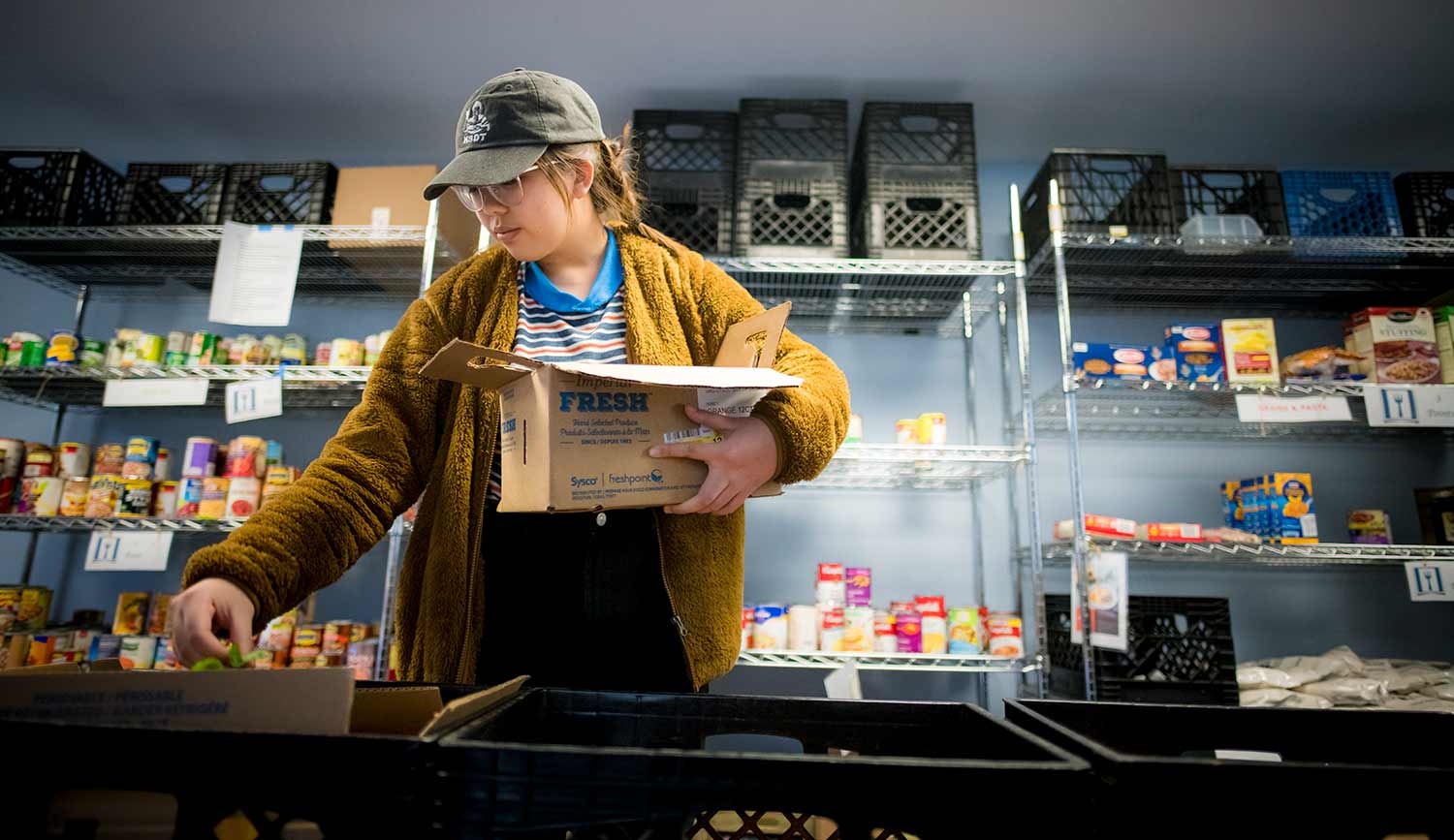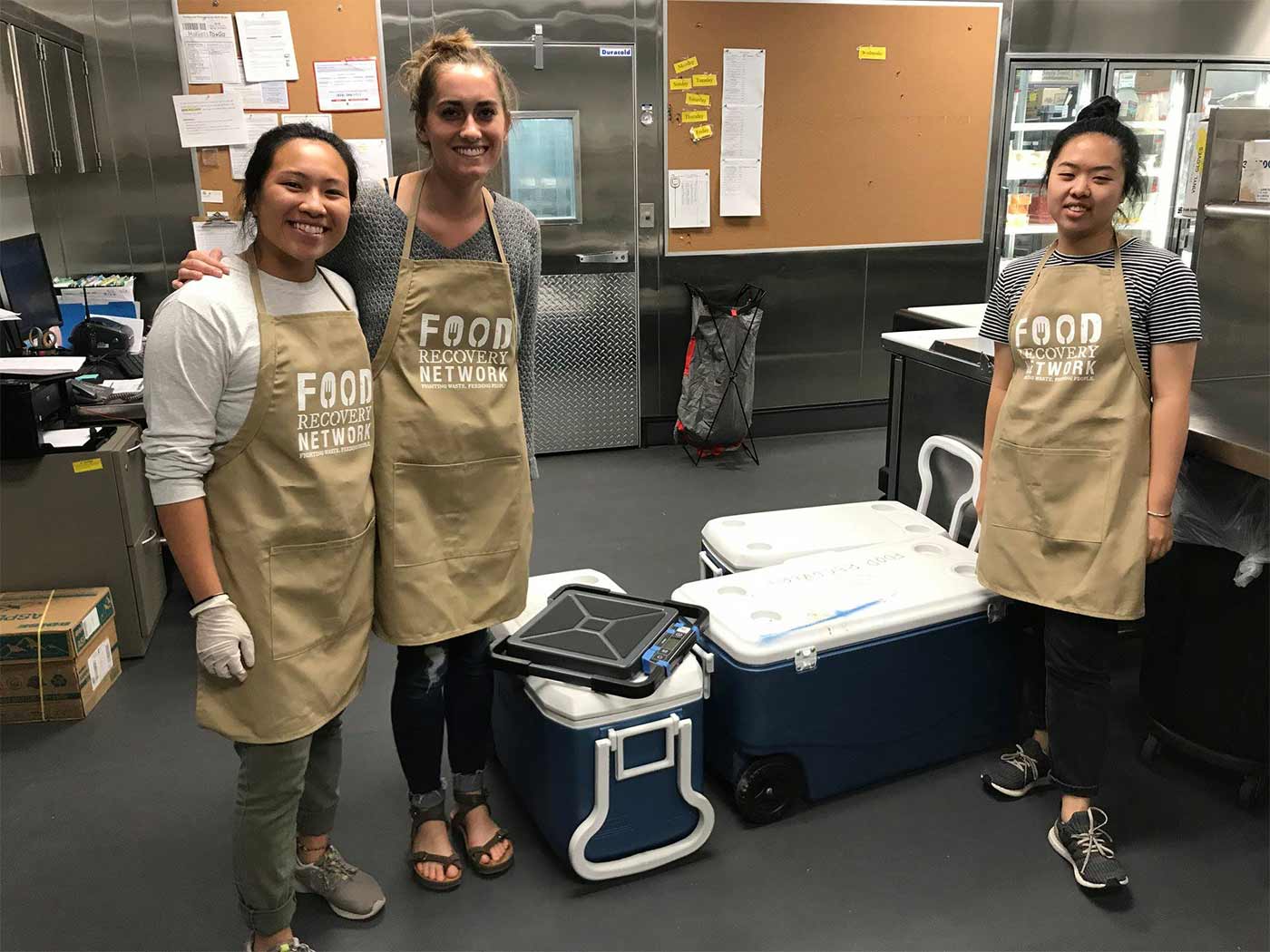By:
Published Date

Photo by Erik Jepsen/UC San Diego Publications
Mobile Food Pantries Pop Up Across Campus
Mobile food pantries have begun to pop up across UC San Diego, offering students a free selection of locally grown, organic produce and dry goods. The goal is to provide undergraduate and graduate students who may be experiencing food insecurity with nutritious sustenance each week. The mobile food pantries extend access to the resources available at UC San Diego’s Triton Food Pantry, the campus’s central location for all students to seek food support.
Mobile pantry manager Keliana Rios explained, “The anxiety of not knowing when you are going to eat or worrying about your budget makes you lose focus in class. We want to educate students about when to seek help—such as if you can only afford fast food—and know that there are so many resources available.”
According to the Wisconsin Hope Lab—which surveys basic needs security among college students nationally—one-quarter of university students in the U.S. reported that they skipped meals or reduced the size of their meals for financial reasons. In addition, the researchers found that 36% of university students nationally were housing insecure in the last year, which could include an inability to pay rent or having to move frequently.
UC San Diego has been growing a network of resources to help students who may be facing food or housing insecurity. The campus’s Basic Needs Initiative provides a multitude of avenues for students to access nutritious and culturally reflective food as well as housing stability resources and financial wellness education. It all starts with a visit to The Hub Basic Needs Center, where students can become connected to a basic needs peer educator, visit the Triton Food Pantry, attend a cooking demonstration, sign up for Calfresh food benefits, learn about emergency housing services and more.
“We partner with Student Affairs Case Management Services, which allows us to quickly provide a solution in a coordinated way across campus,” said Alicia Magallanes, basic needs coordinator. “It’s about guiding students to the right inroads rather than duplicating efforts or sending them to multiple offices.”
Students are helping other students, too. Through the Food Recovery Network—UC San Diego’s local chapter of a national student movement aimed to fight waste and feed people—recovered food is redistributed to people who need it most. Donations are received from campus dining halls and markets as well as nearby grocery stores and farmer’s markets. Since the program began in 2016, more than 36,000 pounds of food has been collected.
Senior Christy Schlutius began volunteering with the Food Recovery Network during her first quarter at UC San Diego. “From the start, it was so inspiring to leave a volunteer shift and know that my time equated to meals for people,” she said. “It is an amazing model for service and community impact because it pairs the problems of food waste and food insecurity in a way that helps solve them both.”

Food Recovery Network volunteers preparing for a recovery trip from the campus’s Housing, Dining and Hospitality. Photo by Erika Johnson/UC San Diego Communications
While a plethora of resources are available, sometimes the biggest obstacle is knowing when to reach out for help. For Anahi Ibarra, who grew up in South Central Los Angeles and experienced homelessness in high school, it wasn’t until she reached out that she began to realize she is not the only one going through these challenges. Fast forward three years, and she is now dedicating her time as one of the campus’s first basic needs peer educators who leads educational workshops and raises awareness about basic needs resources on campus to students, faculty and staff.
“We want students to know that we are here to support them and that they shouldn’t feel stigmatized in seeking out our resources,” said Ibarra.
Share This:
You May Also Like
Stay in the Know
Keep up with all the latest from UC San Diego. Subscribe to the newsletter today.



